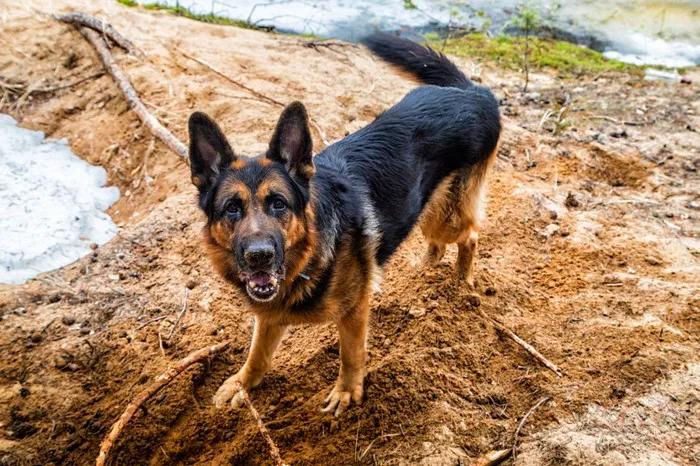Amid the ongoing conflict in Gaza, Israeli troops have been involved in the rescue of various animals, including dogs, cats, horses, and even a parrot, following the ground invasion in October. While some view this as a humane act, accusations of organized looting and pillage have arisen, raising questions about the legality and ethics of such actions.
One notable incident involved Matan Roza, a reservist, who encountered a purebred Malinois, or Belgian sheepdog, during his service in Gaza. The dog, showing signs of familiarity with Hebrew commands, was later given away for free after being advertised on social media.
Critics argue that these actions constitute organized looting and pillage, prohibited by international law and the Geneva Convention. The controversy has gained attention, with anti-Israel activists using the rescue of animals as complementary evidence to support their narrative of alleged immoral conduct by Israeli troops in Gaza.
British-Syrian journalist Richard Medhurst, in a video titled “Israel Looting People’s Pets and Jewelry In Gaza,” accused Israeli soldiers of stealing pets and valuables, showcasing footage of a soldier interacting with a kitten. However, supporters of Israel point to the care of animals as evidence of humane treatment by Israeli troops.
International law expert Tal Mimran highlighted the lack of specific provisions addressing animals in international law, stating that taking animals for rescue might not violate the law unless the intention is to claim ownership. The Geneva Convention prohibits pillage but does not clearly define it, leaving room for interpretation.
Animal welfare activists in Israel, such as Roee Shpernik, founder of Glass Walls, dismissed claims of animal looting, emphasizing that rescued animals are not stolen but saved from dire conditions. Shpernik’s organization has been involved in rescuing animals, mainly dogs, from Gaza and the border area.
While some animals rescued from Gaza may have significant monetary value, such as three horses taken by a soldier named Shai Rabi, animal welfare activists argue that the primary objective is to save them from harsh conditions. The IDF has stated that it does not permit soldiers to transfer animals from Gaza to Israel unless in exceptional cases where the animal requires assistance.
As the controversy continues, opinions diverge on the motives behind rescuing animals amid the complex geopolitical backdrop of the conflict. Animal welfare advocates stress the importance of prioritizing the well-being of the animals, while critics question the legality and ethics of these actions in the context of the ongoing tensions.


